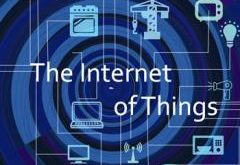From fridges and thermostats to light bulbs and washing machines, smart home utilities are increasingly replacing their bog-standard predecessors. PCR takes a look at the devices constructing a high-tech household…
The home of the future is finally here.
A staple of world’s fairs and sci-fi cityscapes for decades, the vision of an automated household is being crafted into reality by enthusiasts and vendors recognising a growing market for smart appliances.
Even the humble light bulb has been granted a tech transformation, with firms such as LIFX adding features such as Wi-Fi to the ubiquitous utility.
“We’ve reinvented the icon of a good idea to meet the needs and culture of today,” Jo Foreman, commercial director at LIFX, told PCR.
Foreman suggests that home automation products should be on the radar of retailers looking to interest prospective consumers.
“The interest and growth in the Internet of Things (IoT) is driving home automation to become one of the fastest-growing new market segments,” she explained.
Asked about the risk of competition in the market due to its booming growth – IDC predicts IoT spending to hit $7.3 trillion by 2017 – Foreman expressed little worry, saying: “A rising tide lifts all boats.”
“We are all pushing an idea that tomorrow should be better than today and are driven to recreate the ordinary into the extraordinary for everyone’s benefit.”
Key to the market’s success, she added, is accessibility and affordability.
“Innovative technology is often seen as overly complex and expensive,” she explained.
“To be truly innovative, technology solutions should be simple to use, easy to understand, reliable and aligned with today’s pricing expectations.”
To create a unified smart household, consumers might consider using Network Attached Storage (NAS) as a central hub for each device.
Mike Chen, MD of networking specialist Synology, told PCR he is “absolutely” certain that every household will have a NAS in the future.
“In the future all you are going to need is a [managed server] to open an app that can turn on your coffee in the morning,” he stated.
Chen predicts that within a decade, automated utilities will be commonplace, echoing Foreman’s views that price is a priority.
“Home automation will be popular once the technology is more mature – prices will be more acceptable,” he said.
A major selling point for many smart home devices is their ability to eventually pay for themselves.
Thermostats such as the Nest and Hive learn when to turn down the heating to save on energy bills – and can save hundreds of pounds on a relatively cheap investment.
Smart fridges – a popular product reveal at CES earlier this year – can also tempt consumers into a pricer initial cost, by offering the ability to reduce the amount of food being left to expire.
Selling home automation products isn’t the only benefit the market holds for retailers – firms could boost business by utilising smart devices themselves.
“Retailers could use smart bulbs to complement their products and gain control over how consumers feel and experience their stores,” suggested Foreman.
IBM inventor Dr Andy Stanford-Clark, renowned for his home-built automated devices, told PCR that it’s never been easier to start automating a household.
“The availability of cheap, off-the-shelf hardware like the Raspberry Pi computer means that everyone can now afford a home automation hub,” he explained.
Despite the increasing ease, Stanford-Clark added that the market still needs to mature and work together.
“Many devices only talk to their manufacturer’s infrastructure and don’t inter-operate with anything else,” he said.
“This will change, as open standards are adopted. The scenario isn’t too far away where the washing machine, tumble dryer and dishwasher agree amongst themselves which gets to run first, after consulting the energy company via the central hub to get a good deal on the electricity they need.”
“At that point, some degree of home automation will become standard and just taken for granted.”
 PCR Tech and IT retail, distribution and vendor news
PCR Tech and IT retail, distribution and vendor news



